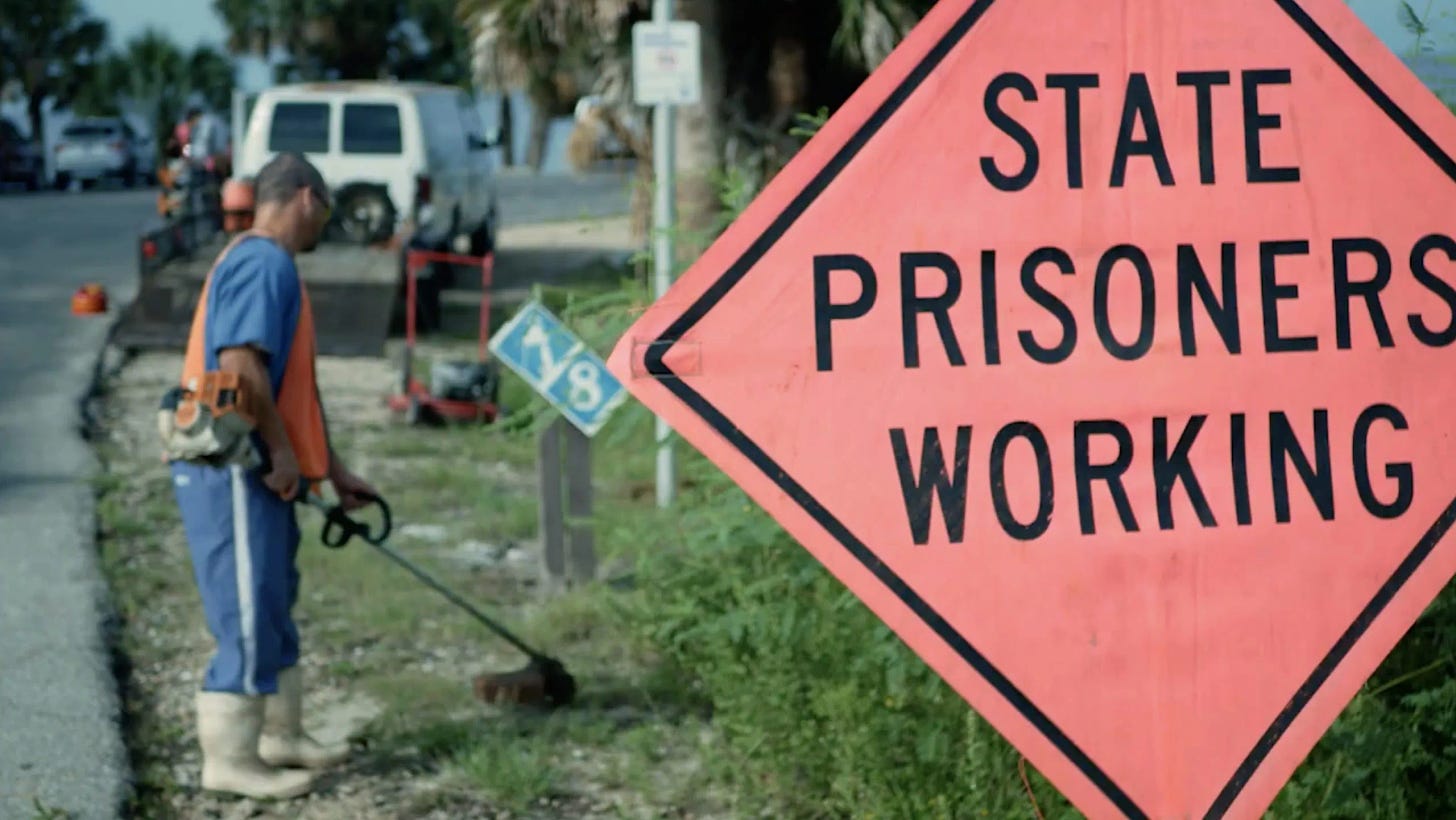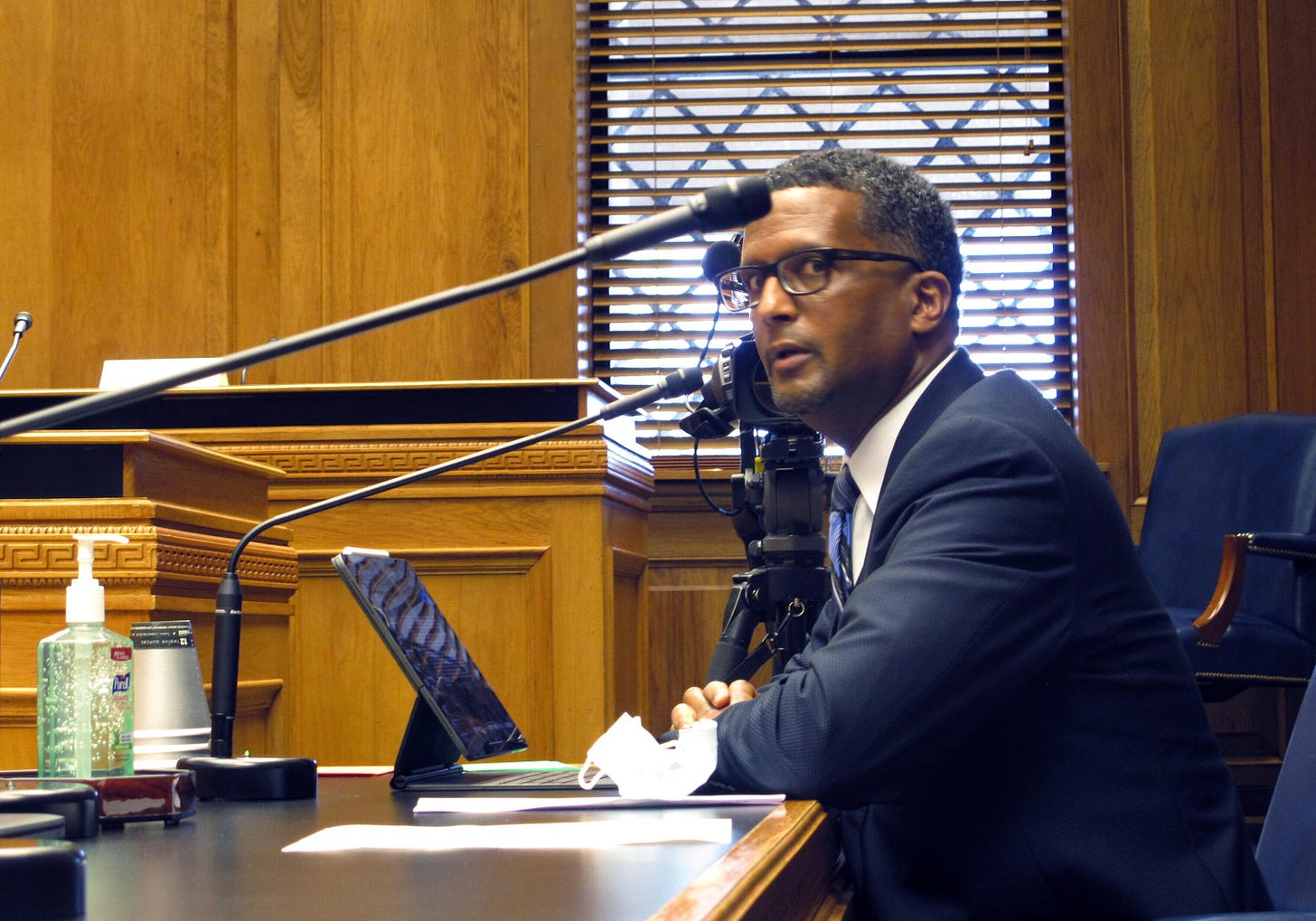Slavery by any other name
Louisianans will vote on slavery--forced prison labor-- on Nov. 8, and the bill's author Rep. Edmund .Jordan is encouraging voters to vote NO to Amendment 7.
More than 150 years after slavery was officially outlawed in the United States, it will be on the Nov. 8 ballot where Louisiana voters will decide to keep or strip a pervasive “exception clause” and replace it with “an amendment to prohibit the use of involuntary servitude except as it applies to the otherwise lawful administration of criminal justice”.
However, State Rep. Edmund Jordan said because of the ambiguity of how the proposed change was drafted, he is asking that people vote against it.
BACKGROUND
In 1865, the 13th Amendment to the U.S. Constitution abolished slavery and involuntary servitude—except as punishment for someone convicted of a crime. The “exception clause” loophole led to repressive laws in the South known as Black Codes and Jim Crow laws that allowed authorities to incarcerate Black people for petty crimes, such as vagrancy, and then force them to work.
About 20 state constitutions have exception clauses that allow either slavery or involuntary servitude as punishment for crime. Louisiana, Alabama, Oregon, Tennessee and Vermont are voting on changing the law, and 3 others have already approved similar proposals to end forced prison labor.
Opponents of the exception said, “With involuntary servitude allowed under the Louisiana Constitution, prisons can legally force people who are incarcerated to work jobs by the use of threat of physical restraint or with no repercussions. There are many companies utilizing this kind of labor in Louisiana, including 5,000 in varying different locations, and about 39 of those are oil and gas companies, exposing the forced workers to toxic materials. So long as this exception is in the state's constitution, prisons will continue to get away with physically abusing those incarcerated across the state.”
Last year, Republican lawmakers killed the proposed ballot question to remove the exception clause. On a second try this year, State Rep. Edmond Jordan, who filed the bill, agreed to compromise language requested by Republican lawmakers, and the Louisiana House and Senate passed it unanimously.
The Nov. 8 ballot question reads: “Do you support an amendment to prohibit the use of involuntary servitude except as it applies to the otherwise lawful administration of criminal justice?”
What practical effect the amendment would have in Louisiana is a matter of dispute, writes Marsha Mercer, reporter at the Louisiana Illuminator.
“If this amendment passes, then the incentive to incarcerate Black people will no longer exist,” said former inmate Curtis Ray Davis II, who served 25 years for second-degree murder in Angola, the Louisiana State Penitentiary. He never made more than 20 cents an hour working while incarcerated. After he was released in 2016, he founded Decarcerate Louisiana, a criminal justice reform organization based in Baton Rouge.
However, on Oct. 25 Jordan released a statement to WAFB encouraging voters to vote NO to Amendment 7. “"The way that the ballot language is stated is confusing. And the way that it was drafted, it could lead to multiple different conclusions or opinions. Because of the ambiguity of how it was drafted, I’m asking that people vote against it, so that we can go and clean it up with the intent of bringing it back next year and making sure that the language is clear and unambiguous," Jordan said.
“Most people believed it was impossible to get the amendment on the ballot in Louisiana, but Louisiana and America should not be in the business of legalized slavery,” he said.
Davis lobbied state legislators arguing the constitutional change is a moral and religious issue, and he said he plans to visit all 64 parishes in the state before Nov. 8 to encourage voters to turn out.
But Louisiana state Rep. Alan Seabaugh, a Republican who opposed the measure in committee, said the effect would be “absolutely none, whatsoever. It’s essentially just symbolic. It says what’s already on the books — although potentially worse.”
The state constitution currently prohibits slavery and involuntary servitude, except in the latter case for punishment of a crime. The new wording says slavery and involuntary servitude are prohibited, but the provision “does not apply to the otherwise lawful administration of criminal justice.”
In other words, “the new amendment technically allows slavery,” Seabaugh said. “I don’t think anybody thought of it that way, but that’s what it says.”
“Anyone of good conscious should want to see this go away. While some might consider it brave or controversial, in fact, it’s probably embarrassing that we haven’t tackled this before today” said Jordan.
The state needs more than 50% of voter approval to change the constitution.




